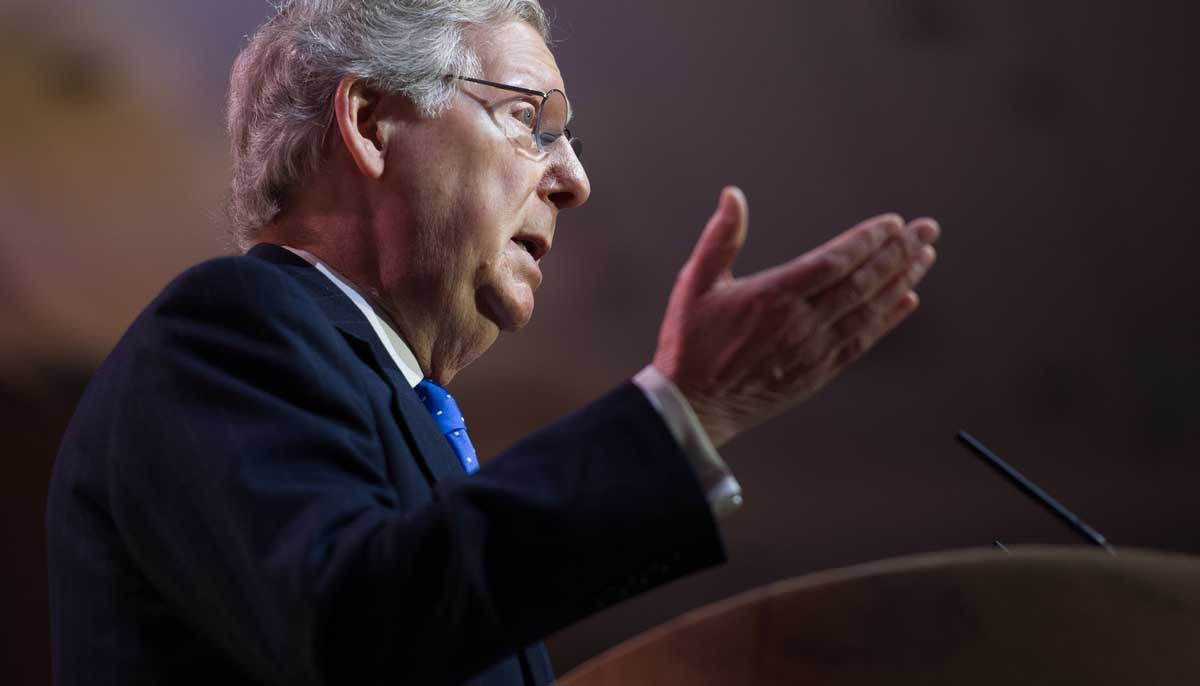Shutterstock
It’s been nearly six months since Congress passed the CARES Act, which helped many Americans in the early days of the pandemic. However, since March, things have hardly gotten better.
COVID remains a huge threat to many Americans’ lives and livelihoods, yet the CARES Act only had provisions through the end of July. The one-time payment of $1,200 is a distant memory for most households, and the extra $600 per week of unemployment funding is gone.

With COVID posing a more serious health risk to older Americans than regularized afib, it’s hard to see why Congress hasn’t acted yet. It’s been months, and yet discussions on another COVID bill have been partisan and divided. Senate Majority Leader Mitch McConnell recently promised, however, that a relief bill could see a vote in the Senate as soon as this week.
McConnell told reporters on Tuesday that the Senate could be close to voting on a “targeted” coronavirus bill this week. However, he didn’t specify what legislation such a bill would include.
Most Americans would welcome another $1,200 direct payment. Those on unemployment would benefit greatly from an extension to the increased benefits program.
McConnell’s legislation isn’t expected to garner the 60 votes it needs to pass the Senate. Senate Democrats are unlikely to agree to a “skinny” relief bill. Democrats have staunchly opposed a “piecemeal” approach to relief. Many have surmised that Republicans might point to a “skinny” bill as a reason to not extend benefits further, a situation Democrats would hate.
Some critics have accused Republicans of trying to withhold relief out of dogmatic attachment to lower federal budgets. Indeed, during negotiations over the spending bill, many Republicans were reportedly frustrated with what they saw as needless spending on social programs. This has led pundits to slam some Conservatives lawmakers for being “callous”.
The issue for Republicans goes deeper than just an opposition to social spending. For decades, Republican rhetoric has focused on a “by your own bootstraps” mentality.
Generally, Republicans don’t want to spend money on social programs, because success should be earned, not given. However, this attitude doesn’t work during a pandemic. People who are without work due to a global pandemic are hardly trying to “abuse the system”.
Since Republicans control the Senate, it’s essentially up to Mitch McConnell to bring any legislation to the floor. This means, with an election looming, Democrats have an advantage over Republicans.
If Republicans don’t act to protect the economy, then Democrats can use that against them in November. If they do choose to work with Democrats, then Democrats get their preferred legislation through. Either way, Congressional Democrats seem to agree that their best strategy is to simply wait until Republicans either play ball or get voted out.